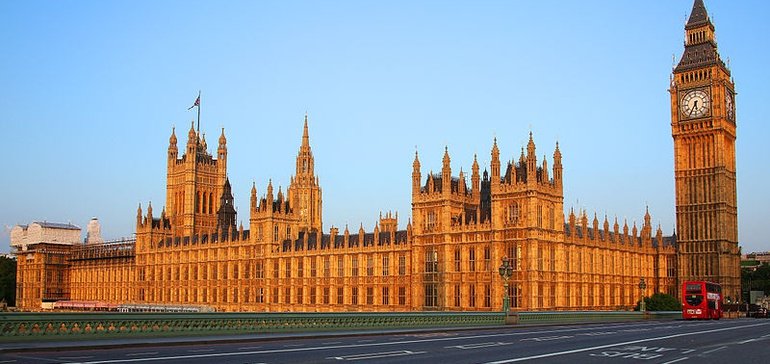Social Platforms are Going through Extra Regulation in Extra Areas – However is it Progress?

[ad_1]
Will 2022 be a landmark 12 months for social media platform regulation?
It’s nonetheless tough to find out how the varied proposed approaches to social media laws will truly work, and what impression they’ll have, however with the UK outlining its newest push to carry social platforms extra accountable for the content material they host, the motion for important regulatory change is rising, which is prone to kind a key level of debate over the subsequent 12 months.
The UK’s proposed ‘Online Safety Bill’, introduced earlier right now, outlines new protections for younger customers, and harder laws on pretend advertisements and scams to higher shield on-line customers.
As defined by BBC:
“The report additionally recommends that a variety of recent prison offences needs to be created, based mostly on proposals from the Legislation Fee, and carried within the invoice, together with promoting or “stirring up” violence in opposition to girls, or based mostly on gender or incapacity and okaynowingly distributing critically dangerous misinformation”
Basically, the invoice goals to implement harder penalties for social platforms to make sure that they’re held extra accountable for enforcement, with the intention to deal with rising issues concerning the affect of digital communication and connection. However questions stay as to how, precisely, such laws may be successfully enforced, with loads coming right down to what’s thought-about ‘cheap’ with regard to response occasions when addressing such complaints.
Varied regulatory teams have sought to implement related guidelines and enforcement penalties, by imposing clearer parameters round what social platforms are anticipated to do in response to official complaints. However Meta has usually been in a position to argue that it could actually’t fairly be anticipated to take away content material inside, say, 24 hours except it’s made conscious of such. When an official criticism is issued, such response may be enacted, however typically, the injury is attributable to content material that hasn’t sparking preliminary concern, which makes really efficient enforcement tough.
For its half, Meta has repeatedly outlined its ongoing push for enchancment on such, through its common Community Standards Enforcement Reports, however gaps stay between group and authorities expectation, and lifelike capability to behave, given that each one customers can put up no matter they need, in actual time, and automatic techniques, whereas bettering, can not catch all the pieces earlier than anybody sees it.
The arguments then come right down to what’s cheap, what’s potential in enforcement and motion, and once more, the remaining disconnect between what regulators anticipate and what social platforms, given their real-time nature, can present.
Is it potential to ever bridge such views – and extra importantly, will harder penalties truly enhance that scenario in any method?
It’s laborious to say on a normal foundation, however there are different parts the place Meta may be held accountable, and the place it does look set to face much more stress over the subsequent 12 months as Governments search extra methods to take issues into their very own arms, and enact management the place they’ll.
A key ingredient on this entrance is the sharing of person information, and the accessibility of such to regulation enforcement. Proper now, Meta is within the midst of a transfer in direction of implementing end-to-end encryption as standard across all of its messaging apps (Messenger, WhatsApp and Instagram Direct), which numerous authorities declare will supply safety for prison exercise by blocking potential detection and interception measures.
Meta claims that it’s working to align with rising expectations round information privateness, however numerous governments at the moment are scrambling to implement new measures to both block its encryption plans, or set up new strategies to extract person information from social platforms.
For instance, the Australian Authorities lately announced new laws that will primarily drive social media firms to disclose the identities of nameless troll accounts, providing a pathway for authorized motion in opposition to these customers.
As per The Guardian:
“Beneath the laws, the legal guidelines would require social media firms to gather private particulars of present and new customers, and permit courts to entry the identification of customers to launch defamation circumstances.”
Which is flawed in itself, as social platforms don’t at the moment implement person identification, and attaching actual world contact data to accounts, as such. If enacted, that will primarily drive the platforms to verify the real-world information of tens of millions of customers, which might be a significant enterprise in itself, and that’s earlier than you even take into account the implications of free speech and authorized enforcement.
Australia’s Excessive Court docket has additionally approved legal interpretation which places extra onus on media firms with regard to inciting defamatory feedback on their Fb Pages. Some have urged that it will see media shops held legally accountable for all feedback on their social media profiles, however the precise element of the case is much more nuanced, with direct connection required between incitement and motion with the intention to search authorized recourse.
Which, actually, is the place all of those legislative and regulatory approaches get tangled – the interpretation between precise trigger and impact, and the way that works in a authorized sense when contemplating on-line speech. Social platforms have modified the paradigms for communication, by offering all people with a platform to be heard, with the immediacy of the format primarily making enforcement unattainable, as there’s no moderation between person and output.
And with billions of customers, it’s not potential for any platform to average all feedback at scale, which implies that time-based penalties for response to official complaints are actually the one mechanism to implement such guidelines, and the technical interpretations round such additionally depart numerous room for debate.
So whereas it looks like the regulatory partitions are closing in round social platforms, actually, numerous grey space stays inside every method. And whereas Governments are eager to place ahead their ‘options’, particularly within the lead-up to their respective elections, given the broader give attention to social media misinformation and abuse, it nonetheless seems like we’re a great distance from precise, stable progress.
Varied approaches are producing some outcomes, however a extra uniform, worldwide regulatory method to digital speech and enforcement must be established to set clear parameters and expectations throughout the board, in all areas, which ideally will even embody parameters regarding algorithmic amplification, and the function it performs in boosting sure parts.
The variance between grandstanding, for political acquire, and precise, efficient motion is clouding true progress on these key parts.
[ad_2]
Source link





